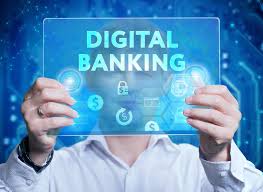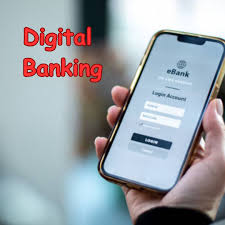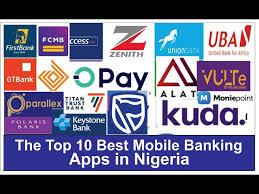![]()
If you’ve landed on this article page, you’re probably searching for a
good business idea—an idea that’s light on the pocket but heavy on
returns, promising both a fulfilling journey and potential profit.
|
How to set up Digital
Bank in Nigeria
With the growing demand for faster and more convenient financial
services, there are more people looking to solve this problem by
setting up a digital bank. We have had startups ask us for
advice on how to set up a digital bank in Nigeria.
It is a technology-based company that provides banking and other
financial services to its customers solely through
digital/virtual platforms such as websites, mobile applications
etc. Examples of these are Kuda, Opay, Palmpay,
Vbank and ALAT by Wema in Nigeria; and Starling Bank in
the United Kingdom. Digital Banks aim at providing faster and
more convenient banking and financial services than the average
traditional bank.
In recent times, the idea of digital banking has become
increasingly popular with the establishment of digital banks.
These digital banks like Kuda, Vbank, and ALAT by Wema provide a
seamless means of banking by allowing customers open accounts,
request debit cards, and perform complex transactions with any
digital device.
A new or existing organization with a license to offer banking
or financial services can launch a digital bank. However, as
they are virtual banks, digital banks are often best run through
a Microfinance bank, a payment service bank, or a regulated
financial institution.
A bank license is a legal document that authorises a financial
institution to operate as a bank and conduct banking activities.
The bank license shows that the financial institution has met
government regulations and requirements to protect its
customers’ money and data. It indicates that the bank is safe
and secure for customers to use.
To receive a bank license, a financial institution must file an
application with the appropriate regulatory authorities, such as
the Central Bank. This usually includes completing capital
requirements, demonstrating operational preparedness, and
passing “fit and proper” assessments on the management team.
Steps to Registering a Digital Bank
In establishing a digital bank in Nigeria, there are 2 major
steps to be taken, this includes;
Licensing: The first step in the establishment of a digital bank
is to determine the appropriate financial license to be gotten
from the regulatory agency, in this case, the Central Bank of
Nigeria (CBN).
Although there is no specific licensing regime for digital banks
mandated by CBN, most companies intending to provide digital
banking services must work with one of the available financial
licenses including the following:
Payment Service Banks Licence: The holder of a Payment Service
Bank license is permitted to accept deposits from customers but
cannot issue loans. The capital requirement for this license is
N5,000,000,000 (five billion naira). The PSB license can only be
obtained by already established banking agents, licensed
telecommunication companies and existing fintech companies, etc.
Microfinance Banks: Digital banks are most commonly incorporated
as Microfinance Banks (MFBs). It has the advantage of being
cheaper to start and it is malleable to fit a number of the
product offerings that FinTech founders may want to offer. The
major disadvantages are: 80% of its total loan portfolio cannot
be more than N500,000 (five hundred thousand naira) for Tier 2
Unit MFBs and N1,000,000 (one million naira) for other
categories of MFBs, and it is prohibited from engaging in
foreign exchange transactions.
For these reasons, we can’t recommend starting a bank as your
first entrepreneurial venture, but more as a capstone if you’ve
had a successful career in banking and financial services.
For those who successfully scale the formidable barriers to
entry, the financial rewards can be great. But for many
community bank owners, the real reward is in providing an
essential institution that ensures the financial well-being of
their community.
In registering a digital bank, below are the details we usually
request for;
Two proposed names for the Digital Bank
The physical address, email address, and objects of the digital
bank.
Personal details (Name, address, phone number, email address,
occupation, valid means of identification, and signature) of the
proposed directors, secretary, and shareholders.
The shareholding structure of the proposed shareholders
Any other information as may be required
Get our Practical Guide on how to set up a Digital Bank in
Nigeria. As you can see, banking is a serious business and only
serious investors or entrepreneurs can muster the patience to go
through the rigorous
process of setting up one. It is also capital intensive.
The first step for entrepreneurs or investors who want to start
a Digital bank in Nigeria is to engage consultants with the
expertise in different aspects of the start up process.
Fund raising, legal and regulatory issues, technical
advisory and documentation, are some of them. Our in house
experts are ready to assist you all the way.
This Guide will
show you the necessary steps to opening your own bank. We’ll
explore how to determine a need and a target market, detail the
elements of a good business plan that will provide the platform
for your success, show you the regulations you’ll need to comply
with and how to meet them, and outline the staff you’ll need to
hire to provide excellent customer service and build your bank’s
reputation.
|







